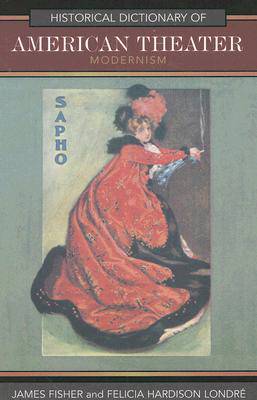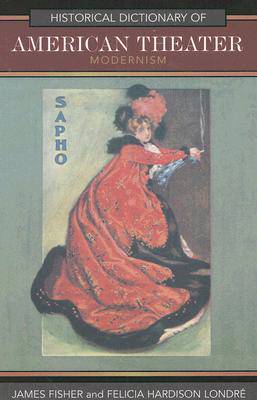
- Afhalen na 1 uur in een winkel met voorraad
- Gratis thuislevering in België vanaf € 30
- Ruim aanbod met 7 miljoen producten
- Afhalen na 1 uur in een winkel met voorraad
- Gratis thuislevering in België vanaf € 30
- Ruim aanbod met 7 miljoen producten
Zoeken
€ 365,95
+ 731 punten
Uitvoering
Omschrijving
The fifty-year period from 1880 to 1929 is the richest era for theater in American history, certainly in the great number of plays produced and artists who contributed significantly, but also in the centrality of theater in the lives of Americans. As the impact of European modernism began to gradually seep into American theater during the 1880s and quite importantly in the 1890s, more traditional forms of theater gave way to futurism, symbolism, surrealism, and expressionism. American playwrights like Eugene O'Neill, George Kelly, Elmer Rice, Philip Barry, and George S. Kaufman ushered in the Golden Age of American drama. The Historical Dictionary of American Theater: Modernism focuses on legitimate drama, both as influenced by European modernism and as impacted by the popular entertainment that also enlivened the era. This is accomplished through a chronology, an introductory essay, a bibliography, and hundreds of cross-referenced entries on plays; music; playwrights; great performers like Maude Adams, Otis Skinner, Julia Marlowe, and E.H. Sothern; producers like David Belasco, Daniel Frohman, and Florenz Ziegfield; critics; architects; designers; and costumes.
Specificaties
Betrokkenen
- Auteur(s):
- Uitgeverij:
Inhoud
- Aantal bladzijden:
- 616
- Taal:
- Engels
- Reeks:
- Reeksnummer:
- nr. 23
Eigenschappen
- Productcode (EAN):
- 9780810855335
- Verschijningsdatum:
- 19/11/2007
- Uitvoering:
- Hardcover
- Formaat:
- Genaaid
- Afmetingen:
- 154 mm x 221 mm
- Gewicht:
- 966 g

Alleen bij Standaard Boekhandel
+ 731 punten op je klantenkaart van Standaard Boekhandel
Beoordelingen
We publiceren alleen reviews die voldoen aan de voorwaarden voor reviews. Bekijk onze voorwaarden voor reviews.











